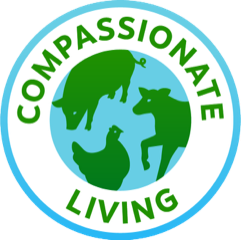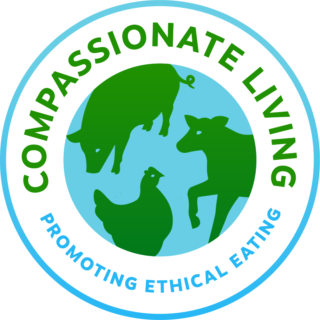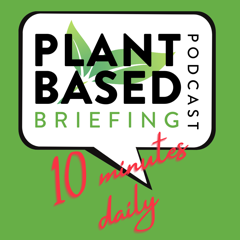Podcast Transcript
Hope
Welcome to the hope for the Animals podcast sponsored by United Poultry Concerns. I’m your host, Hope Bohanec and you can find all our shows at Hope For The Animals Podcast.org as well as UPC – online.org. And I welcome your questions and feedback. I welcome your questions, comments, and feedback on this show. You can email me at hope at upc-online.org.
This is the second segment of a series that we are calling “The Reason for Vegan Series” that will be supplemental to our full episodes. In these short chats, I will be focusing in on certain aspects of the animal agriculture industry, hidden horrors that most people have no idea about.
And today I’m going to talk about the hidden cruelties in the chicken meat industry. But before I get into the details of the industry, I first want to address what I think is a common misconception about chickens, and that is that they are unintelligent. They don’t know what’s happening to them. This is really a cultural bias that we have, and often we hear this from the industry and from farmers that breed and exploit chickens. And when we ask people what they think about animals, any number of questions arise like which animals are more intelligent, which animals feel pain more, dogs and cats always fair the best. It’s because we know these animals. We know dogs and cats that have been in our lives. We know that they can be joyful. We know that they can suffer, so they are seen as more intelligent.
Next on the list often are cows and pigs, and usually at the very bottom are chickens, second only to fish in people’s perception of any number of things like intelligence or emotional capacity. This is a myth that we really need to address because chickens are amazing creatures and all animals, avian, pigs, cows, dogs, cats all are the same, really, in their ability to feel pain and other emotion. And it’s now been scientifically proven that birds feel pain the same way we do. And because that question has been so exhaustively answered by science, the scientists are shifting to other questions about their emotional lives, about sentience.
And what we’re learning about the avian brain and behavior in just the last couple of decades contradicts hundreds of years of misinformation and misinformed views about chickens and other birds. Much of what we previously thought to be exclusive only to the domain of human communication and brain and cognitive function and social behavior, we are now discovering that chickens and turkeys have rich emotional lives. That chickens are far more intelligent and cognitively sophisticated than previously believed.
They express emotions like grief, fear, enthusiasm, anxiety, frustration, boredom, friendship, just a really a wide array of emotions just like us. In a Scientific American article called “The Startling Intelligence of the Common Chicken,” they found that chickens can be deceptive and cunning. They can solve complex problems and that they empathize with individuals in danger. Another article in Science Daily found that birds possess a range of skills, including ” A capacity for complex social reasoning and problem solving.”
I want to add a disclaimer here and say that intelligence, emotional intelligence, should never be the reason why we protect or exploit an animal. Our only criteria should be if they feel pain, if they suffer fear or trauma, which again has been undoubtedly proven by science.
But I feel that it is interesting and important to explore these studies and this amazing array of science around chickens, and their cognitive abilities to really see them as full whole complex beings, because they are. This podcast is sponsored by United Poultry Concerns, and our founder and president, Karen Davis, has lived with chickens for decades, and she often states that they are cheerful birds, and that has always been really interesting to me. What that tells me is that in their natural state, when chickens are allowed to live free and have their own agency, they love life. They are enjoying being alive, and that is an important factor in all of this and about we treat them and what they endure.
And at UPC we believe that it’s important to focus on chickens as much as possible because, a lot of meat consumption is shifting towards chickens now, and so many more chickens are dying in food production. Chickens account for 97% of the land animals who are butchered for food. People will say, “Oh, I’m cutting back on meat.” But when you ask them further, often these people are just reducing beef and pork and replacing that meat with chicken. This can actually cause more suffering and more animals to die because their little bodies are so much smaller. You have to kill more birds to feed the same number of people. For every one pig who is killed and eaten, 60 chickens are killed for every single cow that is killed and eaten 190 chickens are killed. 35 million cows are killed a year, 35 million chickens are killed a day. So many more souls. So, it’s really important for us to think about and focus on chickens.
Okay, so now that we have established that chickens feel pain and suffer, are emotionally complex sentiment beings. So, let’s now look at the chicken meat industry and see what the birds endure.
There are two distinct types of chickens used in the food industry who have been genetically manipulated for decades to serve specific purposes in the business. One type of chicken has been engineered to lay large numbers of eggs, and the other type has been bred to gain weight fast. Those are the chickens people eat, and they have been labeled broiler chickens. Globally, about 40 billion chickens are slaughtered for meat and because of the artificial manipulation through genetics and management techniques, both male and female broiler chickens grow so fast that they are full market weight at about six weeks of age. It’s just a fraction of their life span. In fact, they grow 65 times faster than they would normally. It’s a much-accelerated growth rate than what would be natural for these birds. And they barely get any life, they are slaughtered at just 40 days of age. They’re just adolescents.
And for this very short time that they’re here, they live in utter misery. Chickens bred for meat live in huge sheds with thousands of birds on the floor. These buildings are basically like windowless warehouses where the birds are crammed together, wing to wing, beak to beak, no fresh air, no sunlight, terrible monotony and boredom. Mites and lice and other pests thrive in this environment causing irritation and painful issues on their skin and eyes and feather loss. The sheds are only cleaned out about every two years or so, so the birds have to live and stand in waste and muck and feces that builds up and ammonia fills the air, burning their eyes and throats. It’s just miserable.
These birds are sick from their first days of life as a result of genetic manipulation, poor diets, drugs, antibiotics, other pharmaceuticals that they just pump in them to attempt to keep them healthy just for 40 days in this horrible environment. The toxic air and bedding in the sheds make it hard for them to breathe. They live in almost complete darkness. It’s a horrible existence.
When a few birds are rescued and able to live their lives out on a sanctuary, they often suffer from cardiovascular disease, crippled joints. It can be painful for them to walk and carry their oversized bodies. They can suffer from splay leg, which is where their legs just straddle out on each side, and they can’t hold their own weight. It’s very painful. Their abnormal, manipulated, mutilated bodies caused them inherent misery when they’re transported to slaughter. Workers come into this shed and chase after the terrified chickens, they have nowhere to run. They’re grabbed by their feet turned upside down, which is disorienting and frightening, and they’re roughly stuffed into crates and they’re loaded onto these transport trucks. They can suffer in this melee from broken legs, broken wings, bruising, lacerations, hemorrhaging.
And then they can be transported for days with no food or water. They can suffer from dehydration, heat stroke, hypothermia, heart failure. Millions of birds die before ever even reaching the slaughterhouse just from the miserable conditions, and those are considered acceptable losses to the industry. At the slaughterhouse the frightened birds are then pulled out of the crates and hung upside down by their feet and metal shackles attached to a conveyor belt that takes them through the slaughtering process.
There are very few federal laws protecting animals slaughtered for food, and one of those laws is the Humane Methods of Slaughter Act, which says that an animal must be rendered unconscious before being slaughtered. But guess what? Birds are exempt from this law. So, 97% of the animals slaughtered for food, chickens and turkeys, are not covered under this law, so they have zero protections. Chickens are dragged upside down, fully conscious, through electrified water that shocks their bodies into paralysis. It paralyzes their muscles so that their feathers will come out more easily after they’re dead. But it’s not stunning, they’re not stunned. They’re still fully conscious, they’re just paralyzed. It’s incredibly painful and frightening. They’re fully conscious. When their throats were slit. It can take agonizing minutes for them to bleed out.
The chicken meat industry is a horrible industry where the birds live short, miserable lives and have a brutal death. And compounding our concerns now for viruses and pathogens, poultry is considered the most common cause of foodborne illness in humans. Chickens and turkeys go to slaughter lame and sick and in pain, and as a result, they’re often infected with salmonella and campylobacter, and E. Coli and all kinds of other bacterias that make people sick with foodborne illnesses and poisons.
Chickens are the largest number of abused, warm blooded animals in the world and, along with these billions of birds who go to slaughter for food each year, millions more suffer in laboratories, get dumped in animal shelters and die miserably in poultry houses without anyone ever knowing that they lived.
Now that you know that chickens are feeling sensitive birds and that they suffer terribly in the chicken meat industry, please don’t eat chicken products. I haven’t eaten chicken for 30 years, and I am healthy and thriving. There are lots of new plant-based chicken options from companies like Gardeine, Beyond Meat now has a Beyond Chicken. Now there’s a new one called the NUG. Please give these a try and save a life, and that life could be your own.
Thank you for listening. I hope that this information inspires you to live vegan if you’re not already. And if you are already vegan then we urge you get active for animals, they need us. Now more than ever.
You can find all our other episodes at HopeForTheAnimalsPodcast.org. And if you want to support this podcast, please donate to UPC-online.org.
I always welcome comments, questions and feedback on this show and others. You can email me at hope@UPC-online.org and thank you so much for listening to our “The Reason for Vegan Series” and thank you for your compassion. Please don’t eat chicken products and live vegan.




